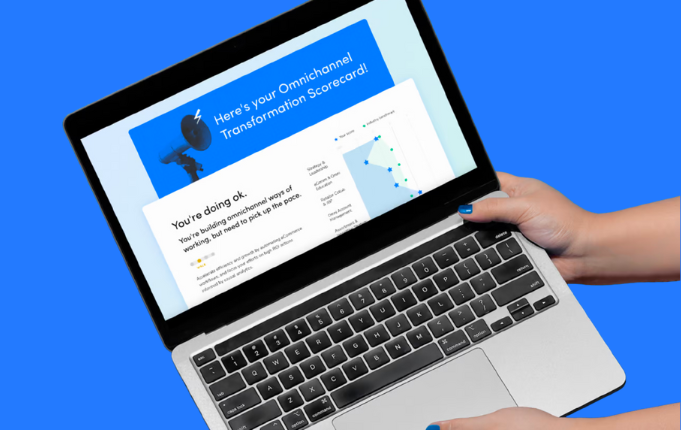

 Entering 2017, the global rise of digital commerce and online grocery has shifted the agenda from perpetual scenario-planning for the “If and when” on to “What now?” and “How?”
Entering 2017, the global rise of digital commerce and online grocery has shifted the agenda from perpetual scenario-planning for the “If and when” on to “What now?” and “How?”
More than ever, these questions need executive focus.
Investors and shoppers no longer award credit for what retailers and brands say they will do to compete with the relevance, selection, convenience and value of “digital native” players – only what is actually done.
Defining and measuring digital success
As the executive agenda shifts to making decisions and acting, too many organizations have yet to even clearly define success.
Is digital a sales channel? A marketing platform? An opportunity to restructure the value chain of suppliers, wholesalers, and retailers? A chance to pursue a high-potential new business model or enter an adjacent category with significant leverage?
The short answer: Yes.
Leaders should think broadly and openly about the opportunities and challenges digital creates, decide what it is expected to do for the business, define the measures of that success and communicate these clearly to the organization.
This process of defining and measuring success has been perhaps the greatest challenge for brands grappling with an industry in transition.
What is the right balance between growth and profitability for a business model on an exponential trajectory, but with new and very different economics?
Is “fair share” realistic in a retail environment that helps new brands emerge, perhaps even giving them structural advantages?
Is it better to focus an organization on desired outcomes, or on the specific activities that lead to those desired outcomes?
Think carefully about the incentives created by new metrics, and be intentional about deploying them across the total company or for specific business units or functions.
An organization in transition needs confidence that it knows its mission and how it will tell if it’s winning.
Prioritizing where to play in digital
Unilever’s high-profile, US$1bn acquisition of Dollar Shave Club was widely analyzed for its implications for direct-to-consumer business models, for suppliers’ relationships with traditional retailers and for whether large FMCG companies will insource or increasingly outsource innovation.
The deal makes for rich fodder for these and other topics, but it is especially instructive as a collection of decisions about where to play.
It targets a key consumer segment (young men) with proven demand in an adjacent personal care category (shaving) in a “must-win” market (the US) with an attractive business model (direct selling and subscriptions).
All FMCG businesses should be testing their conviction around which global markets to prioritize; how to optimize their portfolio of categories, brands and products; whether to invest in direct selling; and which incumbent, emerging, and speciality retailers are most strategic to support.
Around the world, new market entrants are working backwards from desirable consumer demand pools, rapidly launching relevant brands and products, and commercializing them more efficiently through digital commerce models.
Convincing the world to buy what you’re selling is now losing out to helping the world buy what and how it wants. Aligning and equipping the business to sense and respond to demand with agility is essential.
Enabling an organization and executing to win
Digital is transforming organizations, not simply emerging as a team inside of them.
Executives are grappling with how to participate in digital commerce’s hyper-growth without sacrificing heritage, talent, or brand equity.
While each organization’s structure and culture are different, there are some common themes emerging among companies with the clearest commitment to success.
First, there is the expectation that all commerce will soon be digital, and consequently that all disciplines and functions within the organization will be involved in some capacity.
Second, there is an acknowledged need for new specialization.
Essential work like optimizing search placement on retailers’ sites, developing and managing digital product content, and analyzing channel performance and profitability had historically slipped through the cracks without dedicated, skilled professional focus.
So, leading companies are creating new positions with titles like digital acceleration, digital content manager, and e-commerce insights & analytics director, putting essential work front-and-centre instead of leaving it at the margins of traditional disciplines like account management, category management and shopper marketing.
In this context, there is strong demand for “translators” with deep understanding of both the traditional grocery business, as well as emerging technology and business models. Leading companies are investing generously in training and development to narrow the expertise gap, both for “grocery natives” and “digital natives”.
Third, there is growing investment in capabilities and partnerships that empower these professionals and accelerate performance through a feedback loop of strategy, execution, and measurement.
The dynamic of exponential change rewards those that act quickly, decisively, and effectively.
Retailers and brands needn’t reinvent themselves entirely, but doing nothing is a decision in itself – and perhaps the costliest.
A version of this article first appeared on just-food.com.
To stay up-to-date on the most important FMCG/CPG eCommerce trends and insights, sign up to Profitero’s weekly Digital Shelf Digest.


























